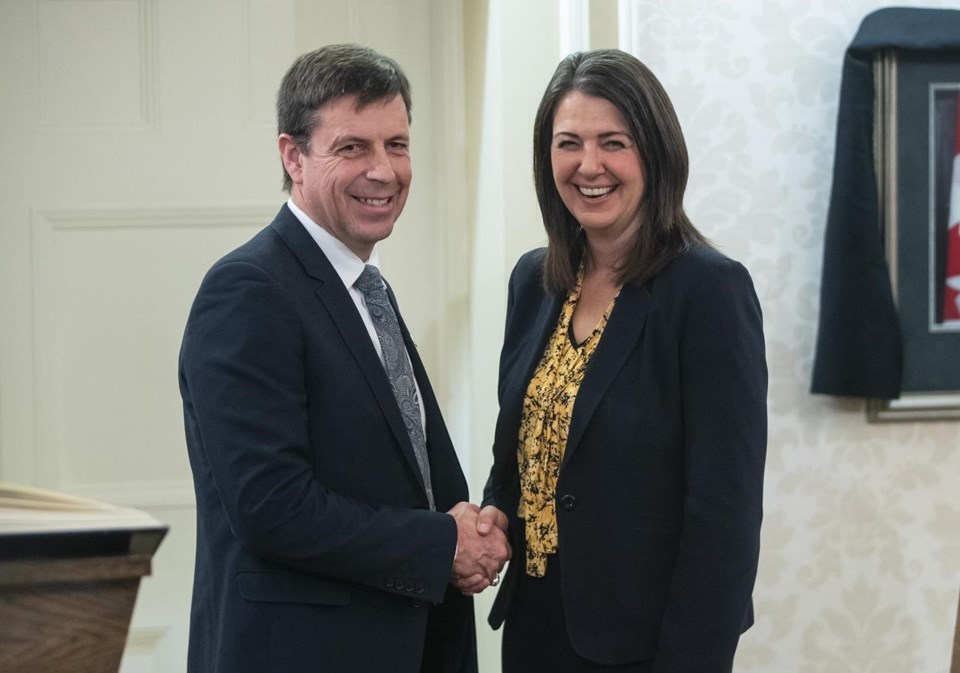EDMONTON — The head of the new provincial ministry that oversees Alberta's parks says there will be a new emphasis on putting people in them.Â
"We want to have parks for the people," Forestry, Parks and Tourism Minister Todd Loewen said after receiving his mandate letter from Premier Danielle Smith on Tuesday.
But critics warn that letter puts the tourism cart ahead of the environmental horse.
"Environmental management needs to be the primary purpose under which everything else falls," said Katie Morrison of the Canadian Parks and Wilderness Society.Â
Alberta's Provincial Parks Act lists five reasons to create provincial parks. Four of them relate to ecological preservation and one refers to "use and enjoyment."
Smith's letter mentions tourism and tourist-related topics seven times over its two pages.Â
It mentions environmental responsibility once. It doesn't discuss species at risk, critical habitat or wildlife management at all.
Smith's letter instructs Loewen to develop campgrounds, recreation and tourism opportunities on provincial lands. He is expected to speed up the approval of permits and licences, establish a tourism and hospitality immigration stream and improve tourist infrastructure in high-traffic areas.
Smith also tells the minister to develop ways to manage provincial forests and grasslands to store carbon.Â
Loewen said his department is already looking at places to expand campgrounds and other facilities.Â
"There's lots of opportunity there," said Loewen. "We'll be looking at options expanding some of the existing (campgrounds) and adding some new ones.
"There's always opportunity to have more trails in more places, whether hiking or (off-road vehicle). We'll see what's being done right now and look at what could be done in the future."
There's lots of room out there, he said.
"There's a very, very small part of the landscape that's actually used by campgrounds. If we want to have people enjoying nature and the landscape, then we have to have things for them to do and places for them to be. Other than that, it becomes a bit of a free-for-all."
Campgrounds are good, said Morrison, but not everywhere and anywhere.
"We need to (develop) in a way that doesn't affect conservation areas," she said. "There are really sensitive areas that can't take any pressure from human use."Â
Carolyn Campbell of the Alberta Wilderness Association agreed there should be limits.
"We would be very concerned if there were campgrounds and trails above evidence-based sustainable thresholds," she said. Â Â
Campbell also fears more lands will be opened to forestry, as the letter mentions shortening wait times for the licences and permits Loewen's ministry issues.Â
"In forestry, there's already too little consultation," she said. "Things are not transparent."
Loewen said he hasn't given much consideration to the forestry side of his portfolio yet.Â
Campbell said Smith's decision to hive off parks from the environment department — where it used to be — is a warning.
"The logic of the ministry's name seems to be more revenue generation from the parks, which is not appropriate or sustainable. Environmental responsibility is first."
Morrison said Albertans want to see more protected land, not less. She points to an online survey conducted for her group of 1,000 Albertans earlier this month.
It found 59 per cent of respondents felt the province's provincial and national park system should be larger. It suggested about three-quarters of respondents felt more land should be set aside for wildlife and left as wilderness with minimal human impact.
About the same percentage felt more parks should be created with a focus on recreation and leisure. Â
This report by The Canadian Press was first published Nov. 15, 2022.Â
Bob Weber, The Canadian Press




